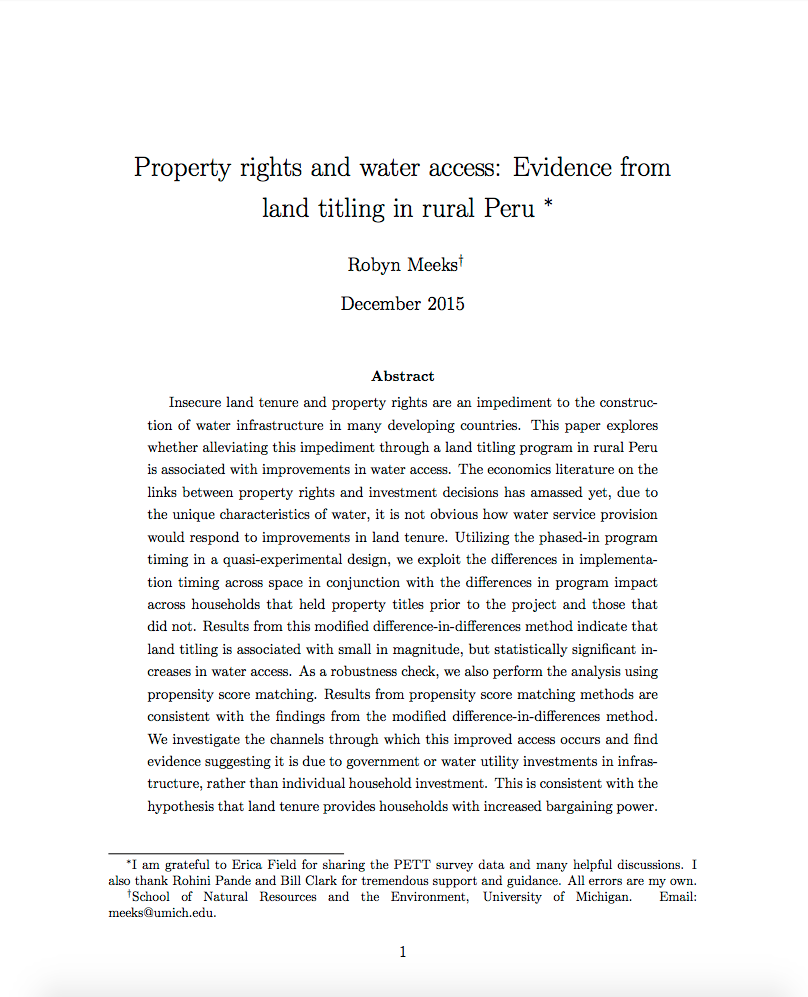Resource information
Insecure land tenure and property rights are an impediment to the construction of water infrastructure in many developing countries. This paper explores whether alleviating this impediment through a land titling program in rural Peru is associated with improvements in water access. The economics literature on the links between property rights and investment decisions has amassed yet, due to the unique characteristics of water, it is not obvious how water service provision would respond to improvements in land tenure. Utilizing the phased-in program timing in a quasi-experimental design, we exploit the differences in implementation timing across space in conjunction with the differences in program impact across households that held property titles prior to the project and those that did not. Results from this modified difference-in-differences method indicate that land titling is associated with small in magnitude, but statistically significant increases in water access. As a robustness check, we also perform the analysis using propensity score matching. Results from propensity score matching methods are consistent with the findings from the modified difference-in-differences method. We investigate the channels through which this improved access occurs and find evidence suggesting it is due to government or water utility investments in infrastructure, rather than individual household investment. This is consistent with the hypothesis that land tenure provides households with increased bargaining power.


